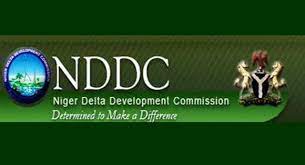In a move to position Nigeria as a frontrunner in vehicle electrification, the National Automotive Design and Development Council (NADDC) joined forces with major automotive industry players to hold a validation workshop on the draft National Action Plan for the Development of Electric Vehicles (EVs) in Nigeria.
The workshop, which was themed “Positioning Nigeria among the leading Countries in vehicle electrification”, took place on Tuesday, July 18th, 2023 in Abuja, aimed to pave the way for the country’s future in electric mobility.
Mr. Jelani Aliyu MFR, the Director General of NADDC, expressed his commitment to embracing advanced technology and emphasized the council’s dedication to vehicle electrification in Nigeria.
In his words, “The NADDC has achieved a significant investment of 1 billion dollars (over 5 billion Naira) in the Nigerian auto sector over the past few years. Several prominent auto companies, including Jet Motors, Coscharis, Stallion Group, Lanre Shittu Motors, and others, are working towards producing 400 electric vehicles annually”
“The first electric vehicle assembled in Nigeria, the Hyundai Kona, boasts an impressive range of 400km on a single charge, while Jet Motors’ offering achieves 300km per charge”
“To support the adoption of EV technology, the NADDC has also established EV/Solar-powered charging stations at key locations, such as UDUS, UNN, UNILAG, and the NADDC Headquarters in Abuja” he said.
Also speaking, Mr. Adewale Rasheed, the Director of Industry Development Department, who represented the Permanent Secretary of the Federal Ministry of Industry, Trade, and Investment, acknowledged the significance of the recent 2023 Nigeria Automotive Industry Development Plan (NAIDP).
Adewale said “The validation workshop fostered inclusivity and synergy among stakeholders to create a detailed and comprehensive Action Plan for the development of electric vehicles in Nigeria”
“The success of this robust plan is expected to drive the implementation of NAIDP and make locally-produced EVs more affordable and accessible to government agencies, private companies, and individuals in the country”.
Additionally, Mr Jelani stated said “This ambitious policy offers special considerations to government customers and includes incentives for individuals to make it more accessible and cost-effective to own and use EVs”
“ The key components of the policy involves substantial investments in charging infrastructure, research and development, and collaborations with the private sector. The government aims to buy and install the necessary charging infrastructure nationwide, making it convenient for EV owners to recharge their vehicles”
“One of the primary advantages of EVs highlighted by experts is the lower total cost of ownership. To make EVs even more affordable for Nigerians, the government is working on implementing a vehicle financing scheme. This scheme will allow individuals to purchase an EV with a minimal down payment and pay the rest over a period of five or six years” Jelani added.
Among the distinguished attendees at the workshop were Prof. A.S Sambo from Usman Dan-fodio University Sokoto (UDUS), Prof. Ozoemena Ani from the University of Nigeria Nsukka (UNN), Chief Executive Officer of NASENI, representatives from the Rural Electrification Agency, and Managing Directors of various automotive and renewable energy companies.
The validation workshop marks a crucial step forward in Nigeria’s pursuit of a greener, sustainable automotive industry, and the collective efforts of the NADDC and industry leaders promise to shape a more environmentally-conscious future for the nation.



